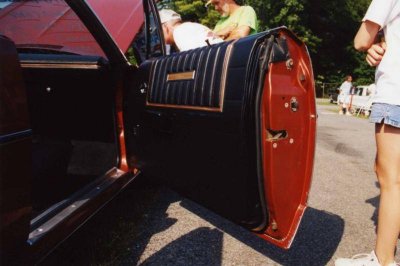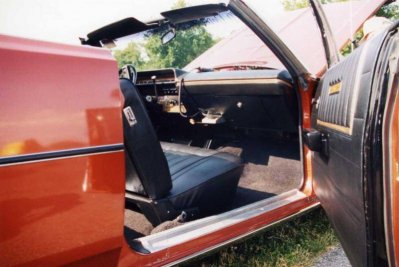polara71
Old Man with a Hat
These are great reference pics for me as well, thanks!
My 70 black hard top with white interior has the same white doors, but my 70 blue vert with the black interior has blue doors. So this is a white interior only thing?
Black interior cars should have black between the seal and the panel.......... The last year for this is 1970


















